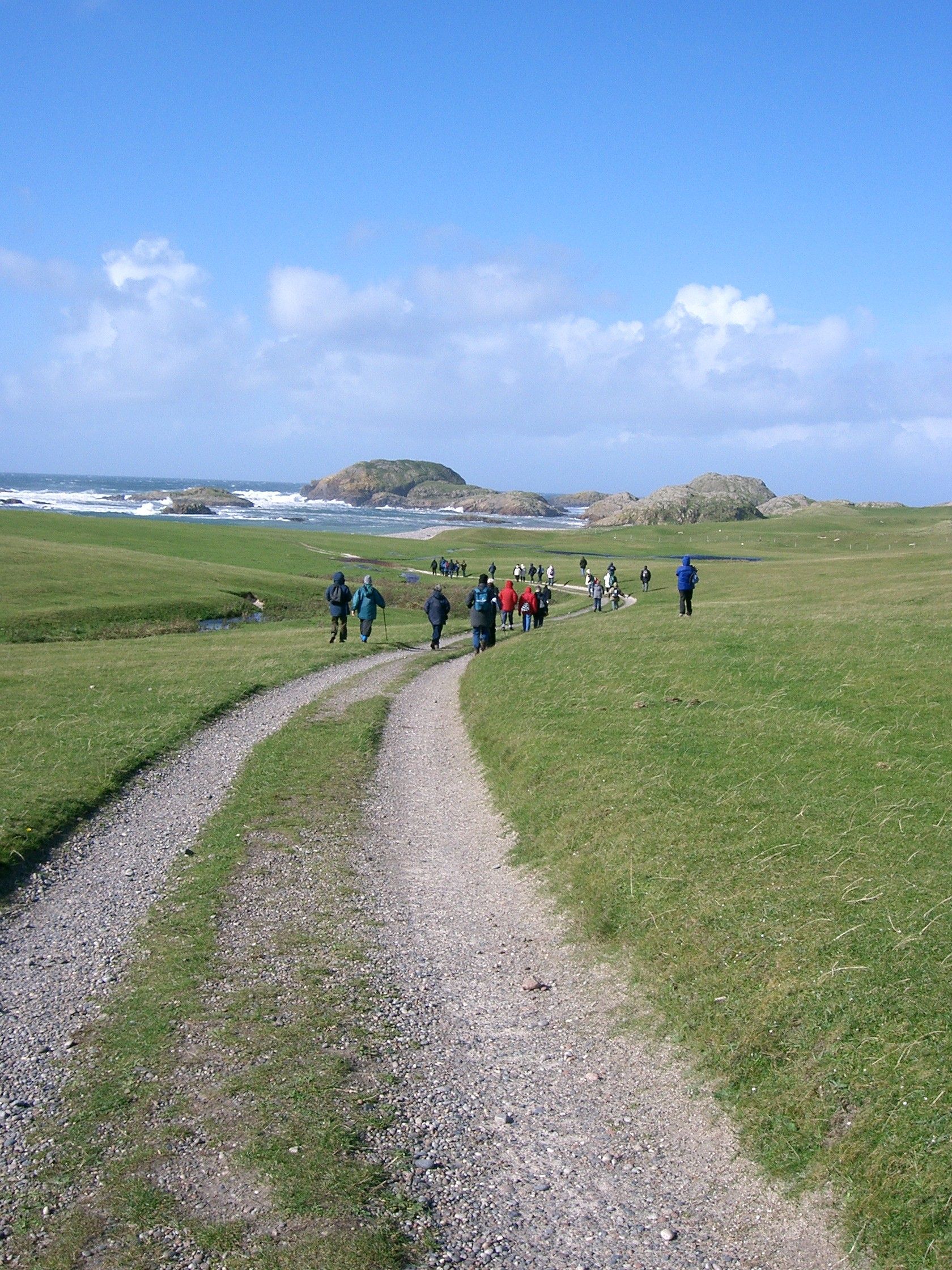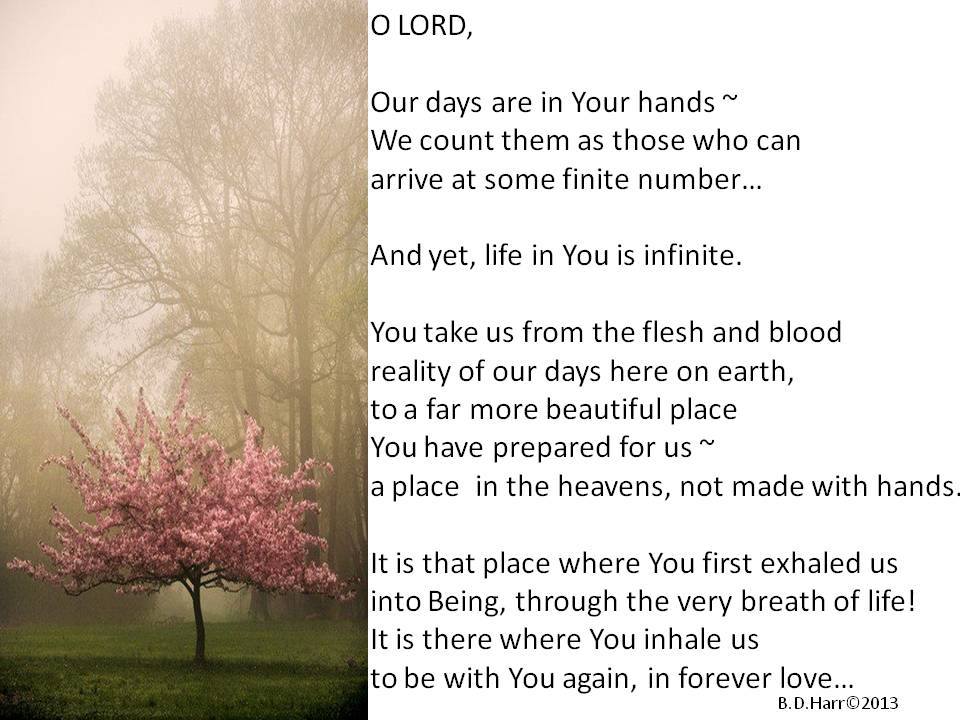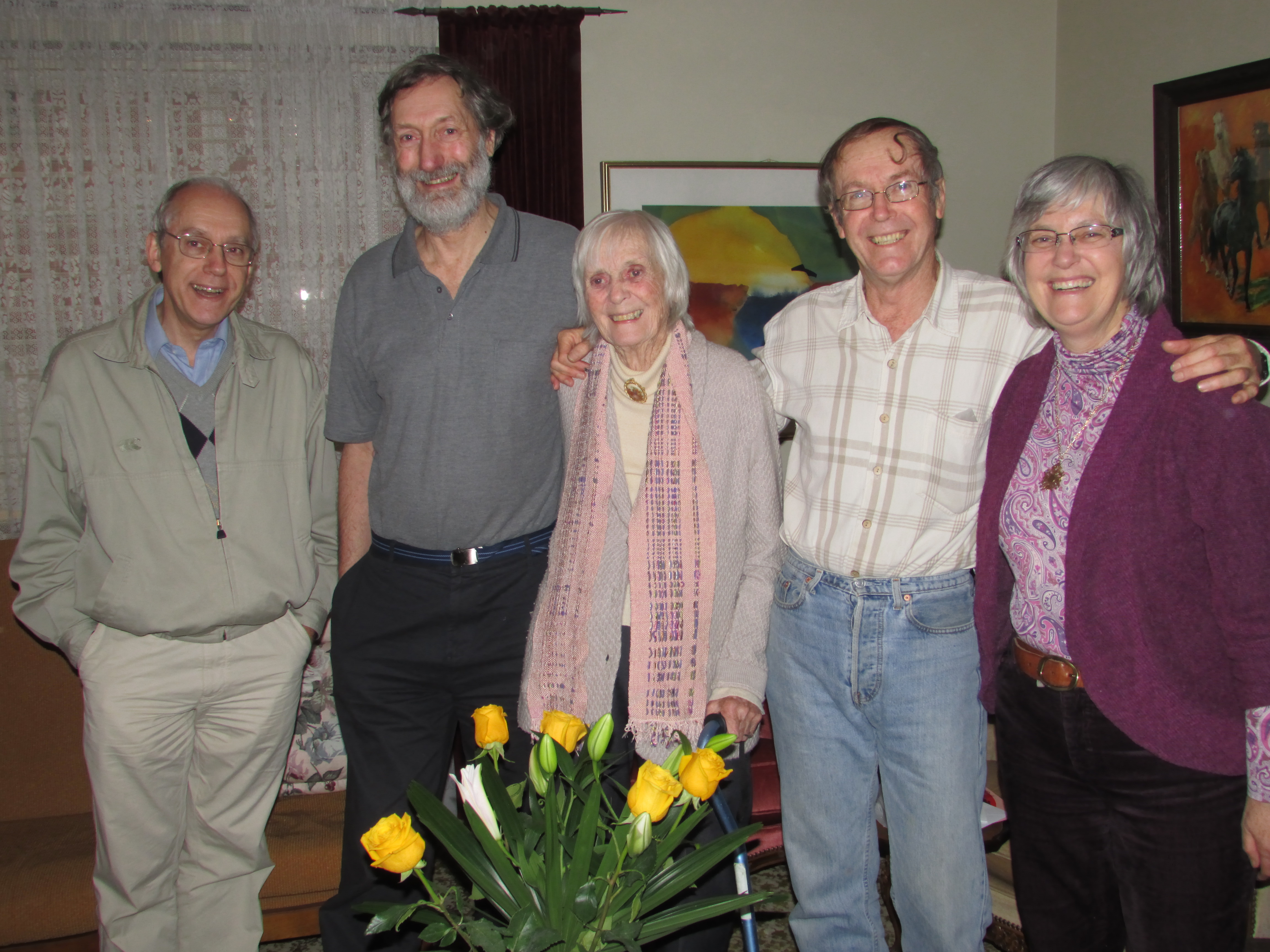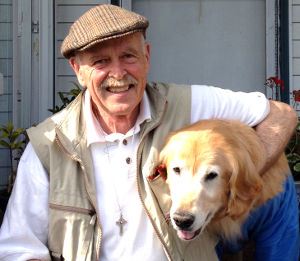Today’s post is by Kimberlee Conway Ireton, author of The Circle of Seasons: Meeting God in the Church Year and the forthcoming memoir Cracking Up: A Postpartum Faith Crisis.
It had always seemed to Emily, ever since she could remember, that she was very, very near to a world of wonderful beauty. Between it and herself hung only a thin curtain; she could never draw the curtain aside—but sometimes, just for a moment, a wind fluttered it and then it was as if she caught a glimpse of the enchanting realm beyond—only a glimpse—and heard a note of unearthly music….And always when the flash came to her Emily felt that life was a wonderful, mysterious thing of persistent beauty.
L.M. Montgomery, Emily of New Moon
Reading Emily’s story for the first time at the age of 13, I fell in love. I wanted to be Emily. I wanted her sixth sense, her mysteriousness, her appreciation of beauty, and especially her experience of what she called “the flash.” Oh how I wanted that glimpse of the transcendent, that thrill at the momentary parting of the veil between heaven and earth.
What I did not know then is that I did have these glimpses of the glory beyond. I think I did not recognize them because I did not understand that the flash is a double-edged sword. When the veil parts, and I glimpse—something—it fills me with awe and delights my soul, but it also opens in me a yearning, a deep and almost painful desire. The older I get, the stronger and more aching the longing becomes to plunge into this mysterious beauty and to live in those moments that shimmer with a radiance that is beyond what I usually see or know.
When I was younger, I would grasp at whatever ushered me into the enchanted realm beyond the veil—the sleeve of my husband’s crisply striped shirt, a bowl of roses fresh-cut from my rosebushes and sitting in a bowl on the counter, the crescendo of the organ as we sing the name of Jesus in church—in an attempt to replicate the experience and so quench my desire to live in moments of mystery.
This never works. After the moment has passed, the thing itself is a reminder of what I once saw or felt or heard, but it can no longer usher me into that other realm. Now I (mostly) know better than to pick roses with the expectation that they will open a window on mystery. I’ve learned that I can never enter that other realm by contrivance or desire. I can only try to pay attention, because I never know when or where the veil might part and mystery might unfold before me.
Transfiguration
These weeks between Pentecost and the first Sunday of Advent comprise the second cycle of Ordinary Time. Smack dab in the middle of this season, on August 6, comes the feast of the Transfiguration, one of my favorite holy days. One of the things I love most about this feast is that it falls during Ordinary Time, a profound reminder that when mystery confronts us, it is often when we least expect it—God takes the ordinary moments of our lives and transforms them into something holy.
I imagine that when Jesus takes Peter, James, and John up on Mount Tabor to pray, the disciples are not expecting to glimpse the mystery of the Incarnation. How many times had these disciples prayed with Jesus in the months or years they followed him? Dozens? Hundreds? And never before had the appearance of his face changed and his clothes become dazzling white. Never before had Moses and Elijah appeared with him in glory. So it is hardly surprising that Peter, James, and John are half-asleep as Jesus prays through the night. Only when they fully awaken do they come face to face with mystery: they see Jesus in his glory, a glory that is his from before time, but which has been veiled from their sight until this moment when they finally see him as he truly is.
As Moses and Elijah are about to leave, Peter bursts out in his impetuous way, “Master, it is good for us to be here; let us make three dwellings, one for you, one for Moses, and one for Elijah” (Lk 9:33). He wants this moment to last, I think, but he also, instinctively, wants to contain their glory. And no wonder—perhaps he knows that we mortals can only bear so much reality before it overwhelms our senses.
Perhaps this is why the disciples are terrified as they enter the cloud. They know that the cloud signals the presence of God, and they know that no one can look on God and live. It is not simply because we are sinful and God is holy. No, it is because God is Real, and our finite minds cannot comprehend nor our frail bodies bear the eternity and majesty—the utter Realness—of God.
I began to understand this fear of God experientially a dozen or so years ago when I took a trip to the Olympic Peninsula from my home in Seattle. As I drove up to Hurricane Ridge, I stopped along the side of the road and got out of my car to look at the mountains. I gazed at the enormous peaks and valleys that rose and fell before me in breathtaking beauty all the way to the horizon, and I began to shiver in spite of the warm August sun.
I was, in truth, terrified. In the face of such vastness, such ancient and incomprehensible substantiality, I felt my own smallness and insignificance. I tried to make myself stand there and reckon with the terror I felt in the presence of a world far older and more tremendous than the one I had known only moments before, but I could not. I turned my back on the mountains and fled to the seeming safety of my car.
In my finitude and weakness, I cannot bear to look on ultimate reality any more than I can bear to look directly at the sun. And so reality is veiled, hidden from view—at least most of the time. But every so often, like Emily and the disciples, I glimpse the enchanted realm beyond the veil. I see, for a fleeting moment, the glory of God.
These glimpses beyond the veil are what sustain me, filling me with hope that, ultimately, all will be well. For in the moments when the veil parts, I see the not-yet now, I glimpse the beauty at the heart of all that is, I see things as they really are and not as they usually appear.
It is as if I, like the disciples, am half-asleep and dreaming until the glory of transfiguration overshadows me and I wake, for a moment, to mystery.
This post is excerpted from Kimberlee’s book, The Circle of Seasons: Meeting God in the Church Year.
The MSA 22nd Annual retreat begins tomorrow evening on Camano Island. There is still time to consider attending, just email me for directions and pay at the site. However for those, like me who are too distant there are other ways to enter into the spirit of the event. Consider reading along with the liturgies which I will post over the next few days. We begin with evening prayers Friday evening, this year using the same prayers as last year.
While I sat beside my mother lost week I read to her from the book In Search of Sacred Places: Looking for Wisdom on Celtic Holy Islands. She loved the story of Iona and Columba often asking me to keep reading even after my voice was hoarse and I wanted to stop.
One reflection from the book really stood out for me.
Everything on Iona has a name. each physical feature of the island has been part of a specific human experience and therefore thought worthy of bearing a name….
These many names are a testimony to the human scale of life on Iona. As the scale of physical size diminishes as one travels to the island-England, Scotland, Mull, Iona-the scale of individuals and spiritual significance increases. Walking is the maximum desirable speed for seeing things fully enough to name them. And when we name things we begin to value them. No wonder we want to be named and known. (37)
To really see and fully enter into the world around us we must walk not run or drive. And when we walk we want to name everything and everyone. We say hello to the people we meet, we look at the flowers and mention them by name, we watch the birds and identify the species. We even like to give our own names to landmarks we pass and houses we enjoy.
To give something an appropriate name that reflects its nature, we must be able to see it fully. To continue appreciating it we need to slow down and notice, not once but regularly. Only in walking or in stillness is this possible.
I have been overwhelmed by the outpouring of love, prayer and tributes from so many of you towards my mother and my family. Thank you for sharing. It really helps. I thought I would share a few here.
Thanks Bonnie Harr for this poem written especially for me and my family.
I was particularly touched by these words from Sundee Frazier.
I was reading a book called “Christian Meditation” by James Finley today and a quote jumped out at me and made me think of you and your mom: “As Saint Mechtilde heard God say to her, ‘Do not fear your death. For in that moment, I will breathe in my breath, and your soul will come to me like a needle to a magnet.’”
As your mom breathes in, she breathes in God, and as she breathes out, she breathes out into God. May your awareness of her breathing make you continue to be aware of your own and how you also are breathing in and out in oneness with God and with your mom.
Thanks Micha Jazz for this wonderful poem.
Death! where is thy Sting?
Where is thy sting, O Death!
Grave! where thy victory?
The clod may sleep in dust beneath,
The spirit will be free!
Both Man and Time have power
O’er suffering, dying men;
But Death arrives, and in that hour
The soul is freed again.
‘Tis comforting to think,
When sufferings tire us most,
In the rough stream the bark will sink,
And suff’ring’s power is lost.
Then, Death! where is thy sting?
And where thy victory, Grave?
O’er your dark bourn the soul will spring
To Him who loves to save.
My Mum died this morning at 8:30 am Sydney time. She passed quietly and peacefully into eternity. Over the weekend we had the opportunity to say goodbye to her as a family, a beautiful end to our earthly relationship with our beloved mother.
It has been a privilege to sit with her, read to her and share love with her over these last 10 days of her life. God has been so gracious. Thank you for your prayers and supportiveness. These are the words that revolved in my mind as I held her hand for the last time
Heaven’s gates have opened wide,
Do you see the Saviour calling,
Welcoming her with arms outstretched.
No more crying, no more tears,
Smiling now, forever smiling,
In a world that conquers death.
Do you hear the trumpets sounding,
Rejoicing in the victory shout.
Death’s dark embrace has given way before God’s eternal light.

As many of you already know, while I am in Australia with my Mum, the rest of Mustard Seed Associates are getting ready for our annual Celtic retreat. We have a number of Celtic crosses we use for this event, all based on these High Crosses, so I thought I would post this as a respite to the journey I am living out here.
High Crosses or Celtic Crosses as they are also known, are found throughout Ireland (and Scotland) on old monastic sites. Along with the Book of Kells and the Book of Durrow, these High Crosses are Irelands biggest contribution to Western European Art of the Middle Ages. Some were probably used as meeting points for religious ceremonies and others were used to mark boundaries. The earliest crosses in Ireland were made of wood and metal and probably much smaller than the great stone monuments we see today. It was generally accepted that the Western Ossory group were amongst the earliest examples of High Crosses to be found in Ireland. Their design imitates the wood and metal crosses before them; but a recent study suggests they may not be 8th century but possibly mid 9th century. These crosses are found within a few miles of each other at Kilkieran, Kilree, Killamery and the finest examples at Ahenny. The majority of scriptural crosses are also believed to have been erected around the 9th century and there are several local groupings: the North Leinster group includes Kells, Monasterboice and Duleek; the Midlands group includes Clonmacnois and Durrow; and another distinct group of granite High Crosses are those of the Barrow valley that includes Castledermot, Graiguenamanagh, Moone and Ullard.
To find out more and for links to information about individual crosses check out The HIgh Crosses of Ireland. Or for a slide show of some of the high crosses click here
Today I just want to go home. I am missing Tom, I am missing our dog Bonnie and I am missing our “normal” life back in Seattle. I know I am in the right place but it is so hard sitting here watching my mother’s life slowly, oh so slowly, ebb away.
Yesterday I changed my airline tickets home, delaying my return for another 10 days. It might need to be delayed again. None of us know how long this dying will take and it is agony for all of us.
I am reminded of the words of the Psalmist:
Psalm 13
For the choir director: A psalm of David.
1 O Lord, how long will you forget me? Forever?
How long will you look the other way?
2 How long must I struggle with anguish in my soul,
with sorrow in my heart every day?
How long will my enemy have the upper hand?3 Turn and answer me, O Lord my God!
Restore the sparkle to my eyes, or I will die.
4 Don’t let my enemies gloat, saying, “We have defeated him!”
Don’t let them rejoice at my downfall.5 But I trust in your unfailing love.
I will rejoice because you have rescued me.
6 I will sing to the Lord
because he is good to me.
When death hovers over a loved one like this the cry of all our hearts is – “how long”? but in the midst I still know that God’s love will never fail and I cling to that. I pray each morning and evening for God’s peace to rest on my mother and for God’s love to engulf her. I know your prayers are with me.
As an Amazon Associate, I receive a small amount for purchases made through appropriate links.
Thank you for supporting Godspace in this way.
When referencing or quoting Godspace Light, please be sure to include the Author (Christine Sine unless otherwise noted), the Title of the article or resource, the Source link where appropriate, and ©Godspacelight.com. Thank you!





